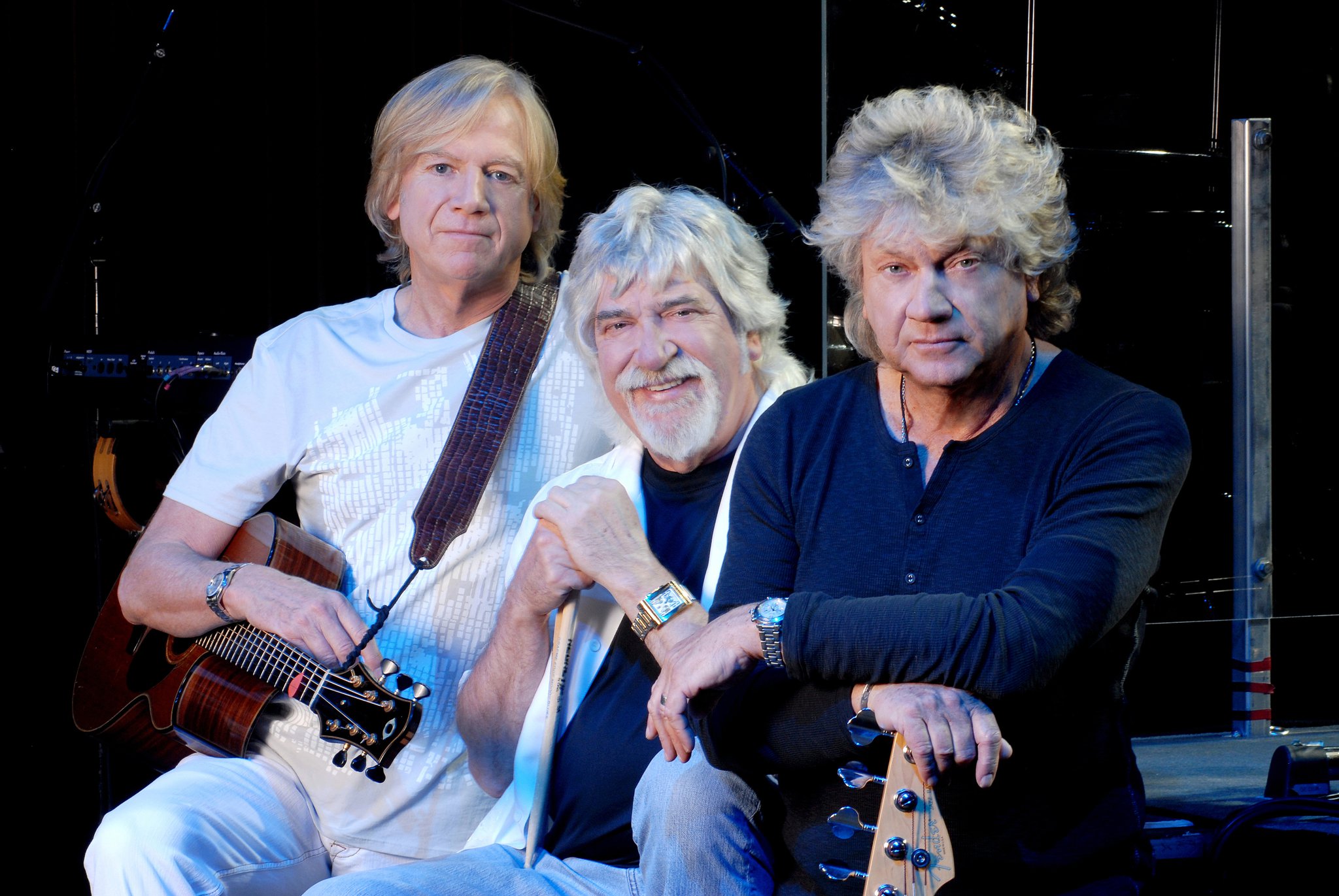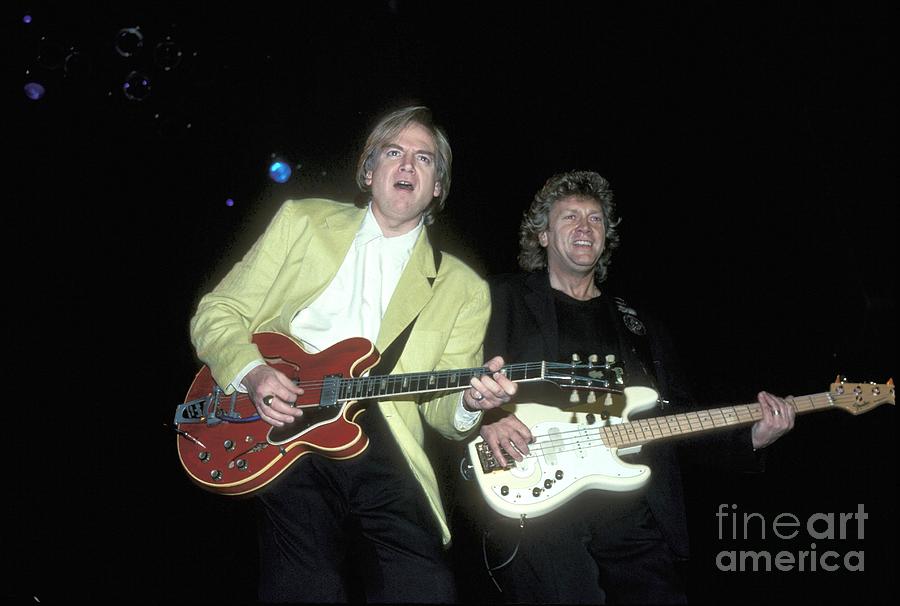“I’m Just a Singer (In a Rock and Roll Band)” – The Moody Blues

Released in 1972 as part of their album Seventh Sojourn, “I’m Just a Singer (In a Rock and Roll Band)” by The Moody Blues is one of the band’s most famous rock tracks. Departing from the band’s typical orchestral and progressive rock sound, this song presents a more straightforward rock and roll vibe, while still delivering a profound message about societal change and the role of music in addressing the world’s problems. Penned by the band’s bassist, John Lodge, the song reflects the band’s frustration with being seen as spokesmen for the counterculture or political movements, reminding listeners that they were, after all, musicians rather than leaders or activists.
Musically, “I’m Just a Singer (In a Rock and Roll Band)” captures a dynamic, high-energy sound that leans into classic rock and roll, driven by powerful guitar riffs, a propulsive rhythm section, and vibrant brass instrumentation. It opens with a burst of drums and horns that immediately grab the listener’s attention, followed by a gritty guitar riff that sets the tone for the rest of the song. The rhythm is steady and driving, keeping the song’s momentum high, and the use of brass gives it a celebratory, almost anthemic quality. The energy is unmistakable and makes it one of the band’s most straightforward rock tracks, despite their reputation for a more progressive and psychedelic sound.

The lyrics of the song carry a message that stands in contrast to its upbeat, lively sound. In “I’m Just a Singer,” The Moody Blues address the expectations placed on them as musicians during a time of social and political upheaval. The 1960s and early 1970s were marked by widespread protest, activism, and calls for change, particularly surrounding issues such as the Vietnam War, civil rights, and environmental concerns. Many artists, including The Moody Blues, were often viewed as leaders of these movements, with their music serving as a rallying cry for social justice and change.
However, in “I’m Just a Singer,” the band pushes back against this notion. The chorus emphasizes their role as entertainers rather than activists with the lines: “I’m just a singer in a rock and roll band / How can I try to do / Everything I can?” The song suggests that while music can inspire and bring people together, it is ultimately up to individuals themselves to enact change. The band acknowledges the power of music but reminds listeners that they are simply performers, not politicians or revolutionaries.

The message of “I’m Just a Singer” is one of personal responsibility. The Moody Blues encourage listeners to take action themselves, rather than relying on musicians or public figures to solve the world’s problems. This idea is particularly resonant in the verses, where the lyrics reference the confusion and chaos of the modern world, and the repeated refrain of “I’m just a singer” serves as a reminder of the limitations of their role. The song is not a dismissal of the power of music but rather a call to action, urging listeners to move beyond passive consumption of art and become active participants in creating the change they wish to see.
Vocally, the song is delivered with intensity and conviction by the band’s lead vocalist, Justin Hayward. His voice carries a sense of urgency and frustration, underscoring the tension between the band’s public image and their personal understanding of their role in society. The harmonies provided by other members of the band add depth and richness to the song, particularly in the choruses, which are layered with lush vocal arrangements that are a signature of The Moody Blues’ sound. This vocal layering, combined with the driving rhythm and brass instrumentation, gives the song a full, powerful sound that enhances its message.

Another important aspect of the song is its musical arrangement, which features a notable use of brass instruments—a relatively unusual choice for a rock band at the time. The brass section adds a sense of grandeur and urgency to the track, making it feel larger than life. The bold, brassy sound complements the message of the song, reinforcing the idea that, while The Moody Blues may be “just singers,” their music still has an important place in the broader cultural landscape. The use of brass also gives the song a celebratory feel, suggesting that, despite the frustrations expressed in the lyrics, there is still hope and possibility for the future.
“I’m Just a Singer (In a Rock and Roll Band)” was a commercial success, reaching the Top 40 on the Billboard Hot 100 and helping to solidify The Moody Blues’ place in rock history. Its straightforward rock sound, combined with its thoughtful message, made it a standout track on Seventh Sojourn, an album that otherwise leaned more towards the progressive and orchestral sound that the band was known for. The song’s success also demonstrated the band’s versatility, showing that they could embrace different styles and still deliver a hit while staying true to their core message and identity.

In the years since its release, “I’m Just a Singer” has remained a beloved track in The Moody Blues’ catalog, appreciated for its energy, its message, and its unique place within the band’s body of work. The song resonates with listeners both as a classic rock anthem and as a thoughtful commentary on the role of music and musicians in society. While the band may have insisted that they were “just singers,” the power and passion of the song suggest that their music had a far-reaching impact, even if they were reluctant to embrace the label of “spokesmen” for any particular cause.
In conclusion, “I’m Just a Singer (In a Rock and Roll Band)” by The Moody Blues stands out as both an energetic rock track and a thought-provoking commentary on the role of musicians in times of social change. The song’s driving beat, bold instrumentation, and passionate vocals make it a memorable piece of music, while its lyrics offer a powerful reminder of the importance of personal responsibility in creating change. As much as The Moody Blues may have downplayed their role in shaping public opinion, “I’m Just a Singer” is a testament to the power of music to inspire thought, reflection, and action.











